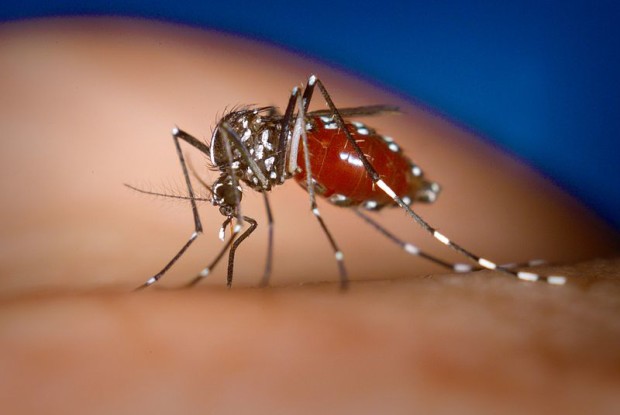


Snowbirds travelling south for spring break should think about bringing bug spray to their hot destinations. Just ask Lindsay Lohan, who became violently ill after contracting the Chikungunya virus while vacationing in French Polynesia over the new year.
The new virus (pronounced chik-en-goon-ya) is a mosquito-borne viral disease that affects the smaller joints in the human body and also causes fatigue, headache, vomiting and a pimply, red rash.
There is currently no cure for the virus.
As of Dec. 9, 2014 there have been 320 confirmed and 159 probable cases diagnosed in Canada says a Public Health Agency of Canada spokesperson, with at least one case in every province.
Popular travel destinations such as Nicaragua, Puerto Rico, and Brazil have all reported confirmed Chikungunya cases in the thousands according to the Pan American Health Organization.
“Most people infected with Chikungunya get sick, which is different from Dengue, where only one out of three people get sick. The infection is self-limited, meaning it will go away but the problem is that for some people the joint pain and joint problems can go on for long periods,” says Dr. Jay Keystone, specialist at the Tropical Disease Unit at Toronto General Hospital.
According to the Ministry of Health, symptoms can take up to 12 days to appear once infected. For others, symptoms can show as early as three to seven days.
The mosquitoes are most active during early morning and dusk, breeding in small puddles or shallow water. They’re able to transmit the dengue virus as well, which has similar symptoms to Chikungunya thereby making diagnosis difficult.
The virus is not passed on through human-to-human contact, but travellers still need to be cautious – especially newborns and those with low immune systems.
According to Dr. Keystone, the elderly and those who suffer from heart disease, diabetes, and high blood pressure are at a higher risk but the mortality rate remains low.
“We recommend getting plenty of rest, drink lots of fluids, and use medicines like ibuprofen to help relieve any fever and pain,” says Christine Pearson, Center for Disease Control (CDC) spokesperson.
Cases of Chikungunya are sprouting up in the Caribbean and then brought north through the southern parts of the United States into Canada when vacationers return home.
According to the CDC, there were 11 reported cases in Florida where local people contracted the virus via bites from mosquitos who had been carrying blood from infected travellers. These 11 people had not travelled outside of the U.S., but became infected from the simple transfusion of blood by the mosquito.
The two types of mosquitoes that carry the virus are the Yellow Fever mosquito (Aedes aegypti) and the Asian Tiger mosquito (Aedes albopictus), according to the CDC. The females exclusively hold the virus.
Vacationers who are thinking of travelling to southern or tropical locations are advised to inquiry if incidents of the virus have shown up, at their intended resorts. If so, potentially vacationers should ask about any mosquito control measures that are in effect at these resorts.

Lindsay Lohan contracted the virus earlier last year. She posted on Instagram about her current medical state.
Courtesy of @lindsaylohan
If you do find yourself in contraction of Chikungunya, fear not – if Lindsay Lohan can survive, so can you.
Planning on visiting a Chikungunya affected country? Here are 5 tips to prevent you from contracting the virus.







